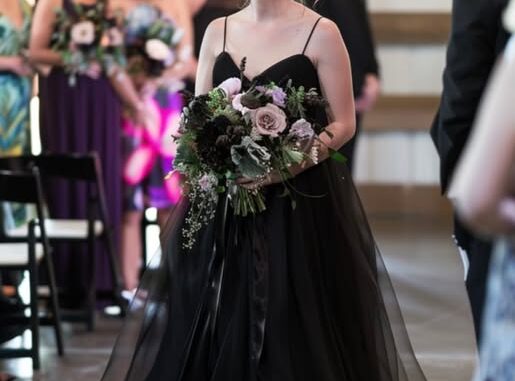
When my daughter walked down the aisle, it wasn’t in the ivory gown we’d spent months perfecting. Instead, she wore a dress as black as night—and the shock wasn’t the color, but the reason behind it.
I’d known Jane and Jack were happy, and their wedding planning took over our lives. Jane had always dreamed of a custom dress, and Helen, my best friend, poured her heart into creating it.
But the night before the wedding, Jack seemed off—distant, nervous. I brushed it off as pre-wedding jitters.
The next morning, as Helen brought in the dress, my heart sank. It was black, not ivory. I asked Jane what was going on, but she was calm. “I need to do this, Mom,” she said.
As Jane walked down the aisle, whispers filled the room. Jack’s face went pale when he saw her. Then I realized: she was reenacting a scene from an old movie, walking down the aisle in black as a symbol of mourning a love betrayed.
When it was time for vows, Jane’s words were chilling. “With this dress, I bury all my hopes for us, because real love doesn’t betray you.” Jack’s panic was evident, but she was resolute. As he begged for forgiveness, Jane dropped her bouquet at his feet and walked away.
Outside, Jane told me she’d discovered Jack’s betrayal just days before. “Love shouldn’t betray you,” she said quietly. I hugged her, telling her she did the right thing.
“One day, I’ll wear white,” she said, “for the right man.” And I knew she would.
Leave a Reply